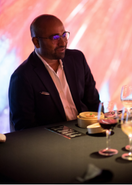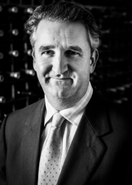The Future of Hospitality
How has the pandemic affected alumni in hospitality?
With the effects of the Covid-19 pandemic far from over for the hospitality sector worldwide, find out how two alumni have coped with the challenges, adapted their businesses, and made plans for the future.
Based in Singapore, Ravi Nahappan (MSc Manufacturing Systems Engineering, 2005) is the founder and owner of popular restaurant chain, Nasi and Mee which serves authentic southeast Asian dishes to clientele across India.
Edward Rudd (BSc Microbiology and Virology, 1994) is director of the UK’s oldest wine merchants, Berry Bros. & Rudd Ltd which was founded in London in 1698. Over the past 320 years, the family business has expanded to provide fine wines across the world.
What made you choose Warwick?
Ravi: I’d just completed my undergraduate studies at University College London and wanted to pursue a Master’s degree. Warwick Manufacturing Group (WMG), then under the guidance of the late Professor Lord Bhattacharyya, had a fantastic reputation for combining engineering with business and applying it to real-life industry scenarios. I wanted to pursue a career in the business side of manufacturing, so the course was a great fit for me.
Something I remember fondly and vividly was the International Orientation Week. The week was so well put together and the welcome I received from other international students was unforgettable. To this day, I’m still in touch with four or five people I met during that week. We’ve remained friends for life.
Edward: I was interested in Biology while studying for my A-Levels. Warwick was one of just a handful of universities at the time that delivered a course in virology – a subject that fascinated me. The combination of the course, and the fantastic reputation as one of the UK’s best universities, were key in my decision.
I had a great time and made a lot of friends. I particularly enjoyed seeing some of the amazing bands that played in the Students’ Union. And important to mention that I met my wife, who was studying there at the same time.
What motivated you to work in hospitality?
Ravi: My grandmother opened one of the first Indian restaurants in Malaysia. Many of my family had connections to the industry and I wanted to follow in their footsteps. I find food so emotive because it brings people together. There’s something so rewarding about providing people with enjoyment because of something you’ve created. Equally, food is a fascinating reflection of the movement of people and culture – how different ingredients are used throughout the world, and how these have been adopted by different cultures over time.
Edward: I questioned whether to start a career more traditionally related to my degree and pursued this idea for a short time. However, lots of the entry level jobs didn’t appeal to me as they were very laboratory focused. Meanwhile, there was the amazing family business which presented me with a range of incredible opportunities. At the time, I thought I would work in the family business for six months or so before potentially moving onto something else. But here I am more than 20 years later, and thoroughly enjoying it!
What skills or attitudes do you think have helped you succeed?
Ravi: While working in hospitality requires a business mind and a customer-centric approach, there are elements of my course that I still apply, such as my engineering mindset. A menu is ultimately a series of ingredients, a heat reaction and then an output. Looking at the Maillard reaction as an example, which takes place at a certain temperature, enzymes are released which create flavour profiles. Making food can be very scientific. At WMG I also learned about the Japanese concept of continuous improvement known as ‘Kaizen’. I quickly realised that it’s impossible to please everyone, but by overcoming my desire for perfection, I could continuously improve the business.
Edward: Hard work is fundamental to being successful in the industry. It isn’t a particularly well-paid sector, certainly at an entry-level, and the hours can be long and unsociable. That said, you can be rewarded with great opportunities and experiences if you work hard and show determination. I’ve held numerous roles within the family-business including sales, marketing, and IT, before completing my accountancy qualifications. I realised that this particular qualification was extremely useful, not only to me, but more importantly to the business.
How has the pandemic affected your business? And how have you coped during that time?
Ravi: There’s a phrase: ‘there is one storm, but we are all in very different boats’. By this, I mean the pandemic has affected hospitality so much but in varying ways around the world. There’s been an incredible polarisation in the way we consume food which has been accelerated by the pandemic. We now consume food either for convenience or as an experience. Both high-end restaurants and those where food is delivered quickly to our doors are excelling, while those in between have generally suffered. Within our business, we’re setting up for both convenience and experience. On a more operational level, Covid has impacted supply chains worldwide, which adds massive inflationary pressure. Climate change and ESG (Environmental, Social and Corporate Governance) are linked to this too and have become hugely important to society during this time. As restauranteurs, we need to align to these new societal norms to be successful.
Edward: As with everyone, the past 18 months have been a rollercoaster for us and Covid has affected the business considerably. We’re the UK’s oldest wine merchant, and for the first time in our history, we had to close the original shop on St. James’s Street in London for many months. For comparison, we lost one day of trading during the Second World War. At the beginning of the pandemic staff had to work remotely which, at the time, was a real challenge. Equally, delivery to customers across the southeast of England is a fundamental part of our business, so we had to ensure our warehouse could continue to operate. Some other aspects of the business did sadly have to close temporarily. We were unable to run events such as wine tasting, wine schools and wine dinners which usually attract up to 30,000 people per year. Meanwhile our wholesale trade into restaurants completely stopped during the first UK lockdown. More positively, we had an enormous increase in sales once the initial UK lockdown was announced, including two or three of our busiest ever days for online sales. We continued to see strong online sales throughout the pandemic with a growing number of new customers. We certainly felt like we were giving our customers some enjoyment at a time when there was little else to look forward to.
What advice would you give to current Warwick students or recent graduates?
Ravi: The restaurant business can be complex and demanding. You often work unsociable hours or over holidays when others get a break. You therefore need to have that burning desire and passion to succeed in the sector, and the best way to see if you have that is to give it a try. Secondly, learn to embrace change and develop a disruptive mindset by approaching problems differently. As we emerge from the pandemic, the rate of change is considerable and there has never been a better opportunity for disruptive change.
Edward: I remember working hard to get a degree from a university as good as Warwick and found it slightly disheartening to have to start in a junior role with that qualification and effort under my belt. However, perseverance is key, and it’s so important to take that first step and get your foot in the door. Once you are in a role, complete it to the best of your ability, even if you think it might be beneath you. If you have a good attitude, learn from your experiences, and continue to develop yourself through further qualifications and hard work, then you can impress people and move up the career ladder.
What are your future plans?
Ravi: I’m looking at what new trends are developing, including what foods will be consumed in say five years’ time. For example, I see great potential in cloud kitchens, where commercial kitchen spaces provide web-focused businesses with the facilities to prepare menu items for delivery. I also think the digitalisation of the sector will continue to be influential. As people have less free time, digital convenience will be key, as will subscriptions to particular food brands.
Edward: As a business, we aim to develop our international offering. We also need to further enhance our digital capabilities. There’s so much technology available that could improve our business, and we need to utilise that effectively. My own aim is to look at ensuring the longevity of the business and exploring who might want to take it over in the longer term, after my own generation have retired. A key part of futureproofing the business is to leave it in a stronger and healthier position than when my generation inherited it. On a personal level, I hope to play my part in the business for a while longer yet, but I’m looking forward to the day where it’s passed on to my children or my family’s children.



